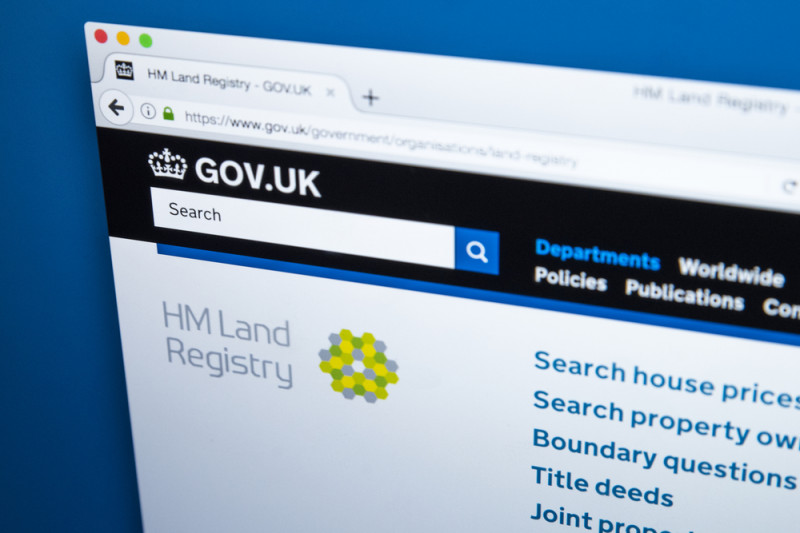Getting Your Affairs In Order – Registering Your Property at the Land Registry

For many, the most valuable asset within their estate is their home. With this in mind, it is important to consider whether the paperwork for your property is in order. This article suggests that – if you have not already done so – it may be high time to dig out and dust down those old paper Title Deeds and consider making a voluntary application to the Land Registry to get your property registered.
What is unregistered property?
If property is unregistered at the Land Registry then the evidence of ownership – and of all the rights, covenants and restrictions affecting the property in question – are not recorded with the Land Registry, but instead contained in paper Title Deeds which trace the history of the property over the years.
From 1925 onwards the Land Registry has compiled a centralised register of all property ownership in England and Wales, with this process moving online in recent years.
Compulsory first registration of property was introduced piecemeal across England and Wales by the Land Registry, with Norfolk being one of the last counties to be subject to this process. Whilst the Land Registry has recently confirmed that 87% of all land in England and Wales has been registered – which accounts for more than 25 million registered titles –a significant amount of land remains unaccounted for, particularly in Norfolk.
How do I know if my property is unregistered?
This is a simple process that you can either check yourself at the Land Registry, or you can give us a call to check for you.
When do I need to register my property?
It is compulsory to register your property with the Land Registry in the event of certain ‘triggering events’, which include when you sell, gift or mortgage your property or on a death. This means that – in the case of Norfolk – if you have not moved home since the 1990s or earlier, then your property may well not be registered. However, you can voluntarily choose to register your property at the Land Registry at any time.
What are the advantages to having my property registered?
There are many advantages to arranging for your property to be registered at the Land Registry:
- Simplicity – rather than sifting through a bundle of Title Deeds to prove ownership, you can, for a small fee, download the Register of Title direct from the Land Registry. The registered title will provide a concise overview of all rights, covenants, restrictions etc. affecting the property, as well as a title plan showing the approximate boundaries of the property.
- Time-Saving – due to having a concise, registered title you will be able to prove ownership quickly. This will speed up and smoothen any future dealings with your property, be this a mortgage or sale or grant from the Local Authority.
- Costs – dealing with unregistered land can be more involved and time-consuming, with some Solicitors charging more to deal with these matters compared to dealing with a registered title.
Whilst you are under no obligation to register your property voluntarily, the Land Registry offer an additional incentive for people to do so by reducing their registration fees by 25% from the fees payable for compulsory registrations.
- Reduced Chance of Fraud – unregistered properties are at a higher risk of fraudulent activity from - for example - deeds being withheld or duplicated. If your property is registered, however, you can sign up to the Land Registry’s free Property Alert Service which notifies you of any activity on the register of your property.
- Reducing Risk – there is always a risk that the paper Title Deeds to a property (which evidence your ownership) could be damaged or misplaced.
- Addressing Defects – when registering your property you may become aware of issues with your title or boundaries which you will be able to deal with directly and in your own time, rather than leaving this issue until you come to sell (which may delay a sale or cause a buyer to withdraw) or for your attorneys or executors to deal with. Your attorneys/executors will not know your property as well as you do and you are therefore the best person to resolve any issues.
- Security – the Land Registry guarantees registered titles with there being no equivalent for unregistered property. If an individual therefore suffers a loss due to an error or omission at the Land Registry then they may be compensated accordingly. Registering property also provides security against third parties claiming adverse possession against your land.
- Peace of Mind – which naturally comes from getting your affairs in order, and also ensures that you are not leaving issues for your nearest and dearest to resolve.
What if I have lost/misplaced my Title Deeds?
Do not worry – you can still apply to the Land Registry for first registration, but a Statement of Truth will need to accompany the application. If you find yourself in this situation then please give us a call to discuss your options.
In our next article in this series we will be looking at the duties and obligations on an Executor and/or Trustee when administering an estate. See the previous articles here:
Getting Your Affairs In Order - Wills
Getting Your Affairs in Order - Lasting Powers of Attorney
If you have any queries regarding this article then please do not hesitate to contact the Wills, Estates and Powers of Attorney Team on 01603 610911 or email us on info@leathesprior.co.uk.
Note: The content of this article is for general information only and does not constitute legal advice. Specific legal advice should be taken in any specific circumstance.


